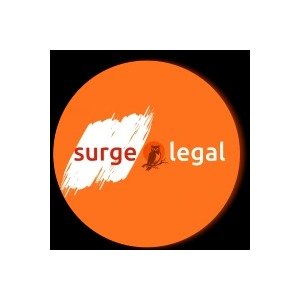Best Trusts Lawyers in Gordon
Share your needs with us, get contacted by law firms.
Free. Takes 2 min.
List of the best lawyers in Gordon, Australia
About Trusts Law in Gordon, Australia
Trust Law in Gordon, Australia, like many places in the country, represents a legal relationship where property is held by one party for the benefit of another. There are several types of trusts, such as Discretionary Trusts, Unit Trusts, and Testamentary Trusts. The laws governing Trusts are complex and typically involve property rights, tax considerations, and sometimes involve international legal aspects. As such, specialized legal advice is often necessary to help understand and navigate these complex matters.
Why You May Need a Lawyer
Legal counsel may be necessary for several reasons in relation to Trusts. Assistance may be required while setting up a Trust, ensuring proper property transfer, legal disputes involving Trusts, or understanding the tax implications. Lawyers with specific experience in Trust law can provide clear guidance and advice. They are also valuable in understanding the best trust structure for your situation.
Local Laws Overview
The local laws of Gordon, Australia, affecting Trusts largely fall under the New South Wales Trustee Act. This act highlights the duties, powers, and responsibilities of Trustees. Provisions are also made for how trustees can invest trust money, management of trust property among others. Understanding these local laws is essential for the successful management of a Trust.
Frequently Asked Questions
What is a Trust?
A trust is a legal arrangement where a person or entity (the Trustee) manages assets for the benefit of others (Beneficiaries).
What types of Trusts exist?
The most common types include Discretionary or Family Trusts, Unit Trusts, and Testamentary Trusts.
What responsibilities does a Trustee have?
Trustees are required to act in the best interest of the beneficiaries following duties laid down in the trust deed and the Trustee Act.
What are the tax implications for Trusts?
Trusts can have resulting tax benefits, but it's crucial to understand the tax obligations that may apply at both State and Federal levels.
Can a Trust be dissolved?
Yes, Trusts can be dissolved under certain circumstances, usually outlined in the trust deed.
Additional Resources
For additional resources, visit the Australian Trustee Associations, Trustee Corporations Association of Australia, and the Australian Judicial Commission, which all offer comprehensive guidance and resources regarding Trusts Law.
Next Steps
If you need legal assistance with Trusts, the first step is to consult a legal professional specializing in Trust Law. They can provide legal advice based on your situation, help establish a trust, and also guide you in managing, altering, or dissolving a Trust.
Lawzana helps you find the best lawyers and law firms in Gordon through a curated and pre-screened list of qualified legal professionals. Our platform offers rankings and detailed profiles of attorneys and law firms, allowing you to compare based on practice areas, including Trusts, experience, and client feedback.
Each profile includes a description of the firm's areas of practice, client reviews, team members and partners, year of establishment, spoken languages, office locations, contact information, social media presence, and any published articles or resources. Most firms on our platform speak English and are experienced in both local and international legal matters.
Get a quote from top-rated law firms in Gordon, Australia — quickly, securely, and without unnecessary hassle.
Disclaimer:
The information provided on this page is for general informational purposes only and does not constitute legal advice. While we strive to ensure the accuracy and relevance of the content, legal information may change over time, and interpretations of the law can vary. You should always consult with a qualified legal professional for advice specific to your situation.
We disclaim all liability for actions taken or not taken based on the content of this page. If you believe any information is incorrect or outdated, please contact us, and we will review and update it where appropriate.








